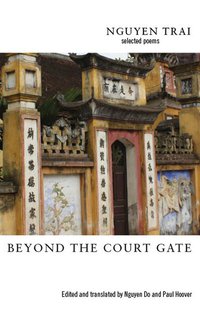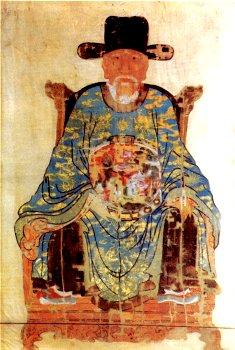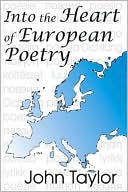Snow on a Crocus, a chapbook of poems by Joan Swift (Swan Scythe Press)
Joan Swift may be best known for her poems about rape, the first of which appeared in the 1970s and were republished in Intricate Moves (1997). But Swift is not the sort of writer who asks the reader to gaze through the poem to the historical or personal fact of rape. Her work is often so anxiously intent to create its own salvaged space that it demands exclusive structures – formal barriers to the irrelevant. She begins Snow on a Crocus with “What Comes Back,” a poem asking if court testimony led to the death of “the man who raped me years ago.” This lobby-poem makes way for the collection’s chilling subject: neonaticide.
Taught by Theodore Roethke in his final classes at The University of Washington, Swift moves instinctively toward the form best suited to the thing she wants to say. In her most notable poems, namely those where an unexpected nuance is discovered along the way, something dark and vital struggles out of the structure’s chokehold.
SWEATER VILLANELLE
You think how good it is to be pregnant in winter,
since you’re pregnant. You throw
a big woolly sweater, the one you call My Bear,
over your bulging belly as you drive the car
through a blizzard, the wild light-headedness of snow.
You think how good it is to be pregnant in winter
with all these flakes falling around you like the pure
covering of some religion. Are you cold with what you know
inside your woolly sweater? Can you bear
the knowing? A scarf hangs loosely from your shoulder
to conceal your engorged breasts. They hurt. The two
of you think how good it is to be pregnant in winter
so no one will guess: a down jacket or Gore-Tex outerwear
disguising the baby. You don’t know yet how
in your big woolly sweater you will have to bear
down as your body lights up with a fire,
how the baby will drop so small and so blue
onto the cold tile in the hardness of winter,
how your big bloody sweater will hide what’s bare.
 The space between speaker and subjects is the submerged topic – how wide or narrow is it? The villanelle, so sharply imagined, is anchored in questions. The speaker’s cold eye is both accomplice and magistrate. It is a tough stance to maintain, and sometimes the strain causes her to say too much. One can figure out, after “so no one will guess,” that the sweater is “disguising the baby.” The opening poem’s final line reads “Is there a killer waiting in all of us?” – an unnecessary, bottom-heavy giveaway caused by the painfully hard to avoid shift from suspicion to conviction.
The space between speaker and subjects is the submerged topic – how wide or narrow is it? The villanelle, so sharply imagined, is anchored in questions. The speaker’s cold eye is both accomplice and magistrate. It is a tough stance to maintain, and sometimes the strain causes her to say too much. One can figure out, after “so no one will guess,” that the sweater is “disguising the baby.” The opening poem’s final line reads “Is there a killer waiting in all of us?” – an unnecessary, bottom-heavy giveaway caused by the painfully hard to avoid shift from suspicion to conviction.
In these sixteen poems, Swift works through couplets, pantoum, sonnet, and terza rima – then is also adept at forms that rise spontaneously. The mother goes to prison. The poet goes to the constraints of her poems – and speaks beyond them through the sheer violence of thought. “Nothing you tell the police makes any sense” — just as the sense of the poet’s repeated return to scenes of crimes is strange and uncertain.
[Published July 28, 2010. 25 pages, $12.95. Winner of the Walter Pavlich Memorial Poetry Award 2010.]
* * * * * * * * * * * * * * *
Beyond the Court Gate, poems by Nguyen Trai, edited and translated by Nguyen Do and Paul Hoover (Counterpath Press)
Robert McNamara was an intelligent man but he knew very little about the historical relationship between China and Vietnam, antagonists for centuries. Current events, mainly concerning global trade, once again attest to their differences. “After China, Vietnam is emerging as the world’s next factory of choice for labor-intensive goods.,” writes Andy Mukherjee on the “New Economist” blog.
 In 1407, the Chinese Minh Dynasty marched south and deposed the Vietnamese court of King Ho Quy Ly and shipped him and his ministers to China, including Nguyen Trai, a high-ranking justice official. Refusing to collaborate with his captors, Nguyen Trai eventually made his way back to the redoubt of Le Loi in the central highlands of Vietnam. In 1427, Le Loi’s forces drove out the Chinese and Le Loi became Emperor (and in time a figure of legend and myth). Nguyen Trai then celebrated Vietnamese independence in hundreds of poems. Translators Hoover and Do have now provided versions of 150 of those poems. They write:
In 1407, the Chinese Minh Dynasty marched south and deposed the Vietnamese court of King Ho Quy Ly and shipped him and his ministers to China, including Nguyen Trai, a high-ranking justice official. Refusing to collaborate with his captors, Nguyen Trai eventually made his way back to the redoubt of Le Loi in the central highlands of Vietnam. In 1427, Le Loi’s forces drove out the Chinese and Le Loi became Emperor (and in time a figure of legend and myth). Nguyen Trai then celebrated Vietnamese independence in hundreds of poems. Translators Hoover and Do have now provided versions of 150 of those poems. They write:
“The poet’s role in this war of independence was crucial. He conceived of what might be called a ‘hearts and minds’ campaign to win the sympathy of the common people. According to folk legend, he ordered his men to write in honey on thousands of forest leaves words that in effect mean: ‘Le Loi will be your king. Nguyen Trai will be your savior.’ The honey attracted ants, which in turn chewed the outlines of letters onto the leaves. The populace was suitably impressed and supported Le Loi’s campaign.”
WRITTEN FOR FUN ON A SUNNY DAY
The rain has just ended; tree branches are darker green.
Cicadas are playing King Thuan’s instrument.
At the window, the book’s yellowness makes me sleepy.
Outside, the mountain’s blueness requests that I sing a poem.
On this quiet day, between the earth and endless sky, I think about my belief.
Doing nothing, I realize pride and profit belonged to my early life.
Trying to remember stories of thirty years ago,
They’re too unclear, like a dream, and I can’t find them!
Times turned cruel for Nguyen Trai. He appears to have been demoted during Le Loi’s rule. Later, his wife was accused of poisoning the Emperor’s heir during his visit to Nguyen Trai’s estate. “On September 19, 15442, Nguyen Trai, four of his five wives, and all three generations of his family were beheaded, with the exception of a son, Nguyen Anh Vu, with whom his fourth wife was then pregnant.”
Though my fate’s been hard, I enjoy the rivers and mountains.
The gate to power is mysterious; I’m scared to touch it.
I’m drunk on bright moonlight mixed with three cups of green tea.
And I’m joyful about the fresh wind in my one-room hut.
To welcome guests, I open wide my scholarly door,
Plant trees of conscience for the children to harvest.
Winning or losing, being rich or poor, depends on the sky above.
So don’t make things complicated by contending with the crowd.
[from “Can I Be In Charge of the Rivers and Mountains?”]
 The translators explain, “While Li Po and other Chinese poets mostly expressed their feelings through landscape, Nguyen Trai wrote, for the most part, about his own life. The literary symbols of Tang Dynasty poetry are relatively general, traditional, and polite. But the language of Nguyen Trai are more colloquial and personal.” But they may have exaggerated these differences to underscore Nguyen Trai’s quite separate identity. He would seem to have something in common with a Chinese poet like Mêng Chiao, in both civic and literary backgrounds. In any event, this book is filled with poems of clarity and personality: “My shadow, the moon, and I are three different people. / Quite often, my ears faintly hear a poem being read. / People rarely live to seventy.”
The translators explain, “While Li Po and other Chinese poets mostly expressed their feelings through landscape, Nguyen Trai wrote, for the most part, about his own life. The literary symbols of Tang Dynasty poetry are relatively general, traditional, and polite. But the language of Nguyen Trai are more colloquial and personal.” But they may have exaggerated these differences to underscore Nguyen Trai’s quite separate identity. He would seem to have something in common with a Chinese poet like Mêng Chiao, in both civic and literary backgrounds. In any event, this book is filled with poems of clarity and personality: “My shadow, the moon, and I are three different people. / Quite often, my ears faintly hear a poem being read. / People rarely live to seventy.”
[Published May 17, 2010. 165 pages, $16.95 paperback.]
* * * * * * * * * * * * * * *
Into the Heart of European Poetry, essays by John Taylor (Transaction Publishers)
A product of the Des Moines, Iowa public school system, John Taylor (b. 1952) claims his specialty is contemporary French poetry. But his perspective has expanded with his travels throughout Europe. An expatriate belle-lettrist, he contributes to the Times Literary Supplement. Into the Heart of European Poetry is a rich trove of work collected mainly from the past ten years, previously published in places like Yale Review, Chelsea, Antioch Review, International Fiction Review, the San Francisco Chronicle, and the TLS. Taylor’s avidity for the broad range of his subjects makes for lively reading.
 “I have long observed that most European poets and writers have an exceedingly precise, yet non pragmatic, approach to style,” he writes. “They each remain in a dynamic individual confrontation with an oft-ancient linguistic, stylistic, and literary heritage that may well resemble only slightly our own Anglo-American literary inheritance, not to mention the particular qualities and limitations of our language. Rhyme, meter, word order, and diction, let alone clarity, complexity, and poetic beauty, are perceived differently from language to language, from literary history to literary history … One of my goals is to elucidate some of these differences to that certain foreign poetics can be more readily appreciated by English readers.” Taylor went about editing, revising and expanding his essays and reviews to meet this objective.
“I have long observed that most European poets and writers have an exceedingly precise, yet non pragmatic, approach to style,” he writes. “They each remain in a dynamic individual confrontation with an oft-ancient linguistic, stylistic, and literary heritage that may well resemble only slightly our own Anglo-American literary inheritance, not to mention the particular qualities and limitations of our language. Rhyme, meter, word order, and diction, let alone clarity, complexity, and poetic beauty, are perceived differently from language to language, from literary history to literary history … One of my goals is to elucidate some of these differences to that certain foreign poetics can be more readily appreciated by English readers.” Taylor went about editing, revising and expanding his essays and reviews to meet this objective.
The chapters are organized by country and language. So, under “German-Speaking Countries,” one finds pieces on Walser, Handke, Sebald, Bernhard, Rilke, and Celan, but also about writers unfamiliar to most English readers such as Elke Erb, Peter Huchel, Ingeborg Bachmann, Peter Altenberg and Hans W. Cohn. Biography informs the works. If you are already deeply read in Celan’s poetry, you may not find anything new here thematically, since Taylor’s aim is to name distinguishing characteristics. But he is especially astute about the original languages and illuminates his summary ideas with particular insights on translation.
Taylor’s previous assignments as reviewer dictate the present roster – and so, there are omissions of great names. There is no Tranströmer, Herbert, Cavafy, Popa. Despite Taylor’s French expertise, there are few French writers here – Bonnefoy, Réda. But Into the Heart of European Poetry is a grand tour of the writers Taylor happened to encounter – including major Slovenian, Bosnian, Serbian, Bulgarian, Hungarian, and Estonian poets. Taylor includes a useful bibliography and index.
For a sampling of his prose, here Taylor writes on Joseph Brodsky: “Whereas much (especially European) poetry written since the Second World War has dealt with self-effacement, few writers attain the naturalness, even insouciance, of Brodsky’s baroque detachment. ‘As I lie dying / here,’ he admits in ‘Törnfallet,’ ‘I’m eyeing/ stars. Here’s Venus; ‘ no one between us.’ A poem like ‘Photograph’ combines vivid pictures of the poet’s childhood (‘We lived in a city tinted the color of frozen vodka’) with a sobering appraisal of the lasting value of all these memories: ‘It’s strange and not very pleasant / to think / that life has been spent for the sake of an apotheosis / of the Kodak company, with its faith in prints / and the jettisoning of negatives.’ Such observations would be chilling in cynical poets, but in Brodsky – who can be funny, even giddy – communing with ‘absence’ does not include nihilism. This is why his poems seem to constitute, paradoxically, a new way of considering humanism.”
[Published March 1, 2010. 408 pages, $39.95 paperback. Hardcover edition was published in 2008.]
Again, a light touch
Again, a light touch on the reviews, but zeroing in on what touches, what illuminates. More!